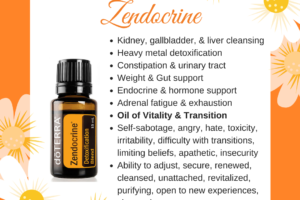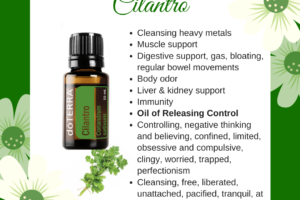Does fat make you fat?
Do you know the difference between bad fats and good fats?
Bad fats are refined fats and cooking oils that are difficult for the body to break down, metabolize and digest. The overabundance of highly toxic refined and hydrogenated polyunsaturated oils in a modern western diet causes inflammation in the arteries signaling the need for cholesterol deposition for healing. The body is very intelligent. Our bodies don’t just deposit cholesterol spontaneously for no good reason. The body produces cholesterol in the body as a healing substance and deposits within plaque on the artery walls to help heal a problem. We need the body to act that way occasionally. Unfortunately, when we are in a constant inflammatory state, our body produces that cholesterol deposition all the time! This is when it becomes a problem. Remember, cholesterol acts like a Band-Aid for inside the body but we can’t have it band-aid the whole of the inside of our bodies right? Read more about Arthritis and Fats.
Stay away from these bad fats
Here are examples of Bad fats:
- Vegetable oils
- Peanut oil
- Sunflower oil
- Margarine
- Canola oil
- Soybean oil
- Shortening
- Farmed hormone laden animal fats
These toxic dangerous highly refined hydrogenated polyunsaturated oils are literally in almost all processed food on the shelves of grocery stores and in the deep fryers of every restaurant. They are no longer in a form that our body can use. Think about these oils cooking food at high temperature and still be good enough to be reused over and over and over again without going bad. Did you know that it takes more than hot water and standard detergent to wash out margarine from the vats its made in? How can our bodies clean that junk out of our system easily?
Where are these bad fats found?
- Fried foods (doughnuts, French fries and other fast foods)
- Baked goods (cookies, cakes, pastries)
- Processed snack foods (crackers, microwave popcorn, chips)
Eating the right fats can actually make you leaner
In the past, natural saturated fats, which have been eaten by humans for thousands of years without ill effect.
Remember the good fats can be saturated, monounsaturated, polyunsaturated as long as they are in their natural form as found in nature with minimal processing. In other words, we haven’t destroyed any chemical bonds or compounds found in the fats. This means our body can easily break it down and use it as one of the macronutrients for optimal health. Good fats can lower the risk of heart disease, stroke and cholesterol.
DHA is the main type of omega 3 to help support brain health, eye health, and memory health
A few examples of Good fats are:
- Nuts (almond, cashews, organic peanuts, pecans, walnuts)
- Oils (Virgin olive oil, virgin coconut oil)
- Grass fed cow meat & butter
- Avocados
- Omega fatty acids (3s, 5s, 7s, 9s and balance of 6s)
- Wild fish fats (Mackerel, Salmon, Cod, Herring)
- Chia seeds
- Flax seed
Good fats are like grease the brain, joints and body. It can be a powerful anti-inflammatory. The brain is human brain is the fattest organ in the body and may consists of at least 60 percent fat if not more. So it makes sense that if the brain doesn’t have enough fat, it fails to function optimally. Fat deficiency can lead to inflammation. Inflammatory is the root of many diseases. Some examples are arthritis, risk of heart disease, high cholesterol, digestive problems, allergies, join and muscle problems, mental disorders, brain development problems, mental depression.
Omega oils
All omega fatty acids play specific roles in overall health. These good fats can have health benefits, including:
- Prevent coronary heart disease
- Prevent stroke
- Reduce depression
- Prevent diabetes
- Promote healthy nerve activity
- Improve vitamin absorption
- Maintain a healthy immune system
- Promote cell development
- Promote healthy lung function
- Lower risk of infant low birth weight
- Reduce pain and inflammation
Interesting fact: “Grassfed Beef is higher in Omega 3 than fish Normally a good ratio for omega 6:3 in fish is 2 or 3 to 1. The lower the better. Grassfed beef from Grassfed Organics is much higher in Omega 3 than fish, with a 6:3 ratio of 0.16 to 1. This information is from a study done at Iowa State University in August 2001.” 1
dōTERRA’s xEOMega is what we use in our family.
dōTERRA xEO Mega Essential Oil Omega Complex is a unique formula of CPTG Certified Pure Therapeutic Grade® essential oils and a proprietary blend of marine and land-sourced omega fatty acids. Omega fatty acids help support joint, cardiovascular, and brain health, and support healthy immune function.* A daily dose of xEO Mega provides 950 milligrams of marine lipids (providing 300 mg of EPA, 300 mg of DHA, and 55 mg of other omega 3s), and a blend of 210 mg of plant-sourced fatty acids. xEO Mega also includes 800 IU of natural vitamin D, 20 IU of natural vitamin E, and 1 mg of pure astaxanthin, a powerful antioxidant carotenoid* harvested from microalgae. xEO Mega is encapsulated in a vegetarian-friendly softgel.
How to get rid of these nasty fats in your body?
Add 1-2 drops of lemon oil (or other citrus oils) to your drinking water daily. Citrus oils helps breaks down petrochemicals too. Don’t be surprised if your toilet bowl is greasy when you clean it next.
Take the dōTERRA TerraZyme complex. This contains 10 different enzymes to help break down FATS, gluten, starches, proteins, fibers, sugars etc. It is awesome. Follow the instructions. I like to take 2 in the morning, 1 in the middle of the day and 2 at night.
Get dōTERRA Products Wholesale
Table of Contents

















